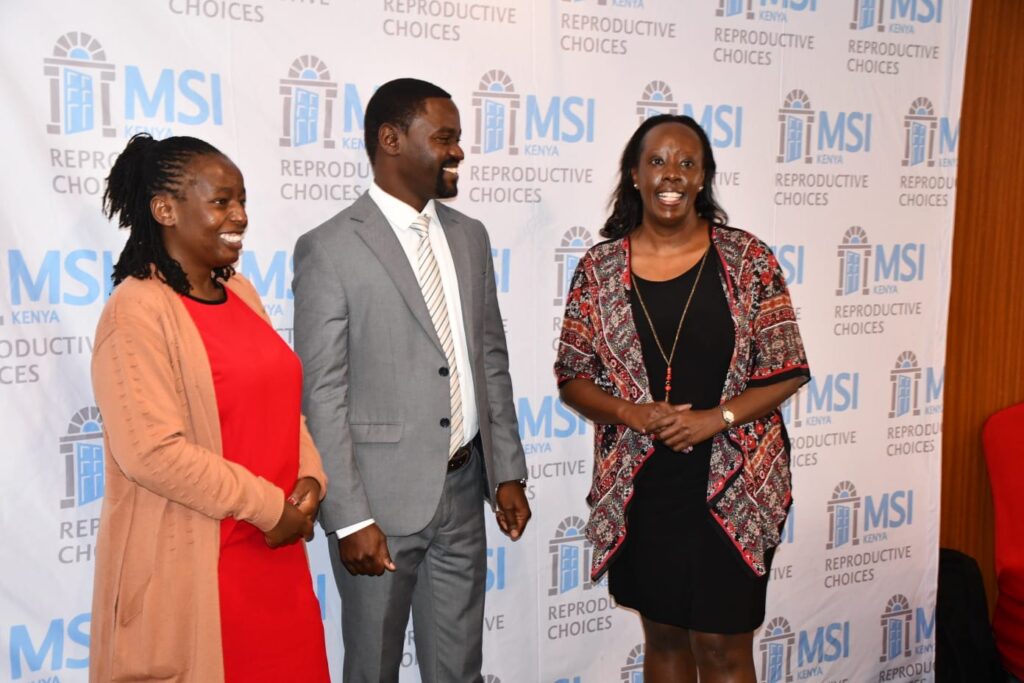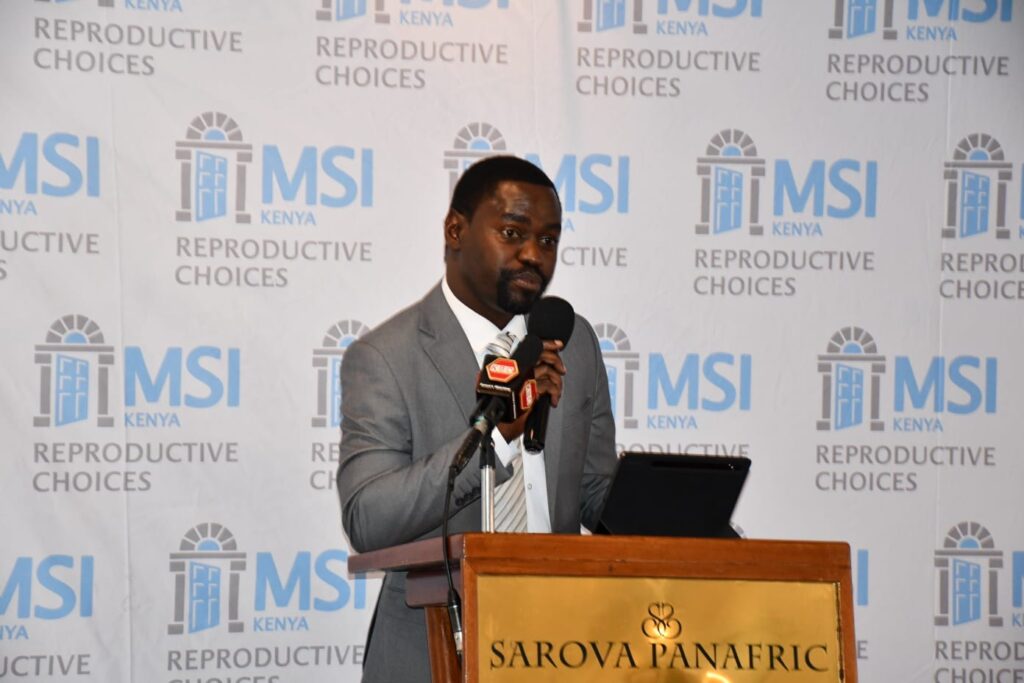By Victoria Musimbi.
In a country where many still avoid conversations about sexual and reproductive health, one organization has spent four decades filling the silence. Marie Stopes International (MSI) Reproductive Choices Kenya is marking its 40th anniversary under the theme 40 Years of Reproductive Choices.
For four decades, MSI has helped girls stay in school, saved women’s lives, and given communities the tools to take charge of their reproductive health. From preventing teenage pregnancies to providing life-saving post-abortion care, its work has turned what could have been lost futures into stories of hope.

At the anniversary celebration in Nairobi, journalist Jeremick Joe shared his journey with MSI, one that has shaped not only his reporting but also his career.
“MSI has been more than an organization to me, it has been a mentor,” he said. “They trained me to view the world through a sexual and reproductive health and rights lens, and that has changed the way I tell stories.”
As a journalist, Jeremick has spent the past two years telling stories of girls who returned to school because of timely SRHR services, women whose lives were saved through safe care, and communities transformed through awareness. These stories, he said, have touched hearts, changed minds, and even shaped policies. He appreciates MSI’s openness, the willingness of its experts to provide clarity, and the organization’s commitment to truth and transparency.
Through MSI’s journalist training programs, Jeremick has gained the skills to cover sensitive topics with accuracy and empathy. The organization has linked him to opportunities locally and internationally, deepening his understanding of sexual health reporting. “I have seen first-hand how MSI helps a schoolgirl stay in class, avoid early pregnancy, graduate with pride, and step confidently into her future,” he said. “I pray that MSI continues supporting girls to live their dreams because, as I always say, supporting a woman’s dream is supporting the future of a nation.”

For Dr. Walter Obita, Country Director of MSI Reproductive Choices Kenya, that impact is possible because of strong partnerships.
“We do not work alone,” he explained. “We partner closely with the Ministry of Health at both national and county levels, aligning our services with government priorities and ensuring policies support access to sexual and reproductive health.”
These partnerships extend to other stakeholders, including local NGOs, community health promoters, faith leaders, and the media. “The media plays a critical role in breaking myths, shaping perceptions, and sparking public dialogue,” Dr. Obita noted. “That’s why we invest in building journalists’ capacity because accurate, compassionate reporting can save lives.”
From a legal perspective, Dr. Obita clarified that abortion in Kenya is restricted, not illegal, and there are defined circumstances under which post-abortion care must be provided. Restrictions, however, often drive women toward unsafe, backstreet procedures. With about 51% of pregnancies in Kenya unintended, many end in unsafe abortions with serious complications.
To address this, MSI focuses on four key interventions: strengthening policies and regulations, expanding sexual and reproductive health education for all age groups, improving contraceptive access nationwide, and mobilizing local resources to close funding gaps.
He also addressed widespread misconceptions from myths about long-term contraceptives to fears about vasectomy affecting sexual performance. “When pregnancies are spaced and planned, households are more stable, girls stay in school, and people can plan for their futures,” he said.
Inviolata Nafula, Head of Marketing at Marie Stopes International Kenya underscored the scale of their reach. Operating in 41 counties, MSI has expanded into underserved northern areas like Isiolo and Samburu. Since 1985, they have served more than 40 million clients, averted 2.5 million unintended pregnancies, prevented over 1.1 million unsafe abortions, and in 2024 alone, averted 1,500 maternal deaths.
One in three clients say they would have had no alternative provider without MSI. But cultural and gender barriers remain in many communities, men are the main decision-makers in family planning. To address this, MSI engages men as clients, community change agents, and supportive partners, while also creating youth forums and community dialogues to challenge harmful norms.
Service delivery is through multiple models: outreach to hard-to-reach areas, health system strengthening in 260 sites, partnerships with 60 private facilities, adolescent and youth programs, 16 holistic centres of excellence, 44 training sites for Ministry of Health staff, nationwide social marketing of reproductive health products, and a contact centre that handled over 246,000 interactions last year.
As the celebrations drew to a close, the message was clear: MSI’s mission is powered by partnerships and driven by a belief that every woman and girl in Kenya should have the knowledge, access, and freedom to make choices about her body and her future.
